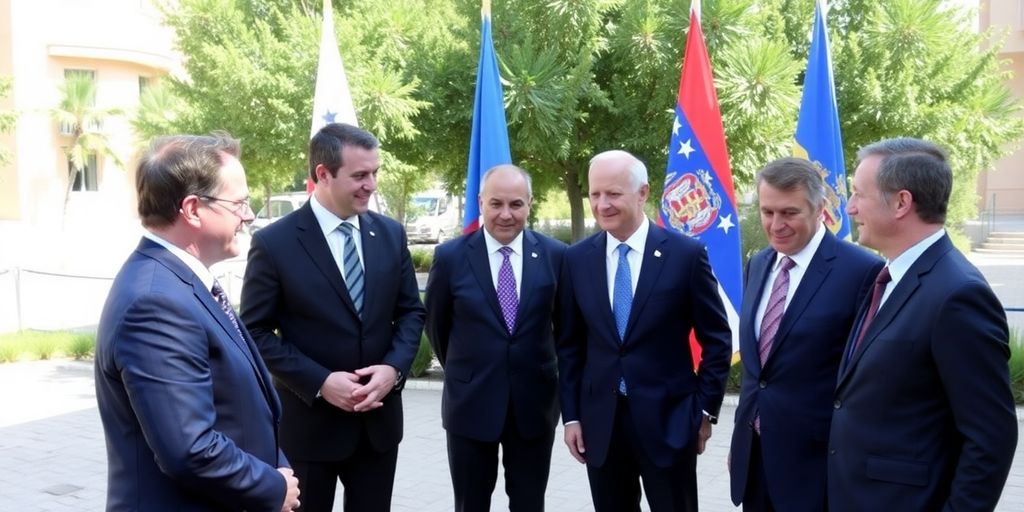Danish diplomat Peter Sorensen has been confirmed as the European Union’s special representative for the dialogue between Kosovo and Serbia. This appointment comes as the current envoy, Miroslav Lajčák, is set to conclude his term on January 31st. Sorensen’s extensive diplomatic experience in the region is expected to play a crucial role in advancing the dialogue process.
Key Takeaways
- Peter Sorensen confirmed as the new EU envoy for Kosovo-Serbia dialogue.
- He replaces Miroslav Lajčák, whose term ends on January 31st.
- Final approval from EU foreign ministers is expected soon.
- Sorensen has significant experience in the Western Balkans.
Background of the Appointment
The European Union has been mediating the dialogue between Kosovo and Serbia since 2011, aiming to normalize relations between the two nations. The dialogue has seen several agreements, but implementation has been lacking, which has hindered both countries’ paths toward European integration.
Peter Sorensen was selected by Kaja Kalas, the EU’s High Representative for Foreign Affairs and Security Policy. His appointment is seen as a strategic move, given his previous roles in the region, including serving as the EU Special Representative for Bosnia and Herzegovina and as Head of the EU Delegation in Skopje.
Sorensen’s Diplomatic Experience
Sorensen’s career spans various significant positions within the EU and international organizations:
- Senior Advisor at the European External Action Service (EEAS) for Digital Diplomacy.
- EU Special Representative for Bosnia and Herzegovina.
- Head of the EU Office in Sarajevo.
- Head of the EU Delegation in Skopje.
- Advisor to the United Nations Mission in Kosovo (UNMIK).
- Special Representative of the EU High Representative in Serbia.
His extensive background in the Balkans is expected to provide valuable insights and facilitate smoother negotiations between Kosovo and Serbia.
Challenges Ahead
The dialogue has faced numerous challenges, including:
- Implementation Issues: Many agreements reached during the dialogue have not been implemented, raising concerns about the commitment of both parties.
- Political Dynamics: The political landscape in both Kosovo and Serbia is complex, with various factions influencing the dialogue process.
- EU Integration: The EU has emphasized that the normalization of relations is crucial for both countries’ aspirations to join the European Union.
Conclusion
As Peter Sorensen prepares to take on this pivotal role, the EU hopes that his experience and diplomatic skills will help bridge the gaps between Kosovo and Serbia. The upcoming approval from EU foreign ministers will mark the official start of his term, and many are watching closely to see how he will navigate the intricate dynamics of this long-standing conflict.






